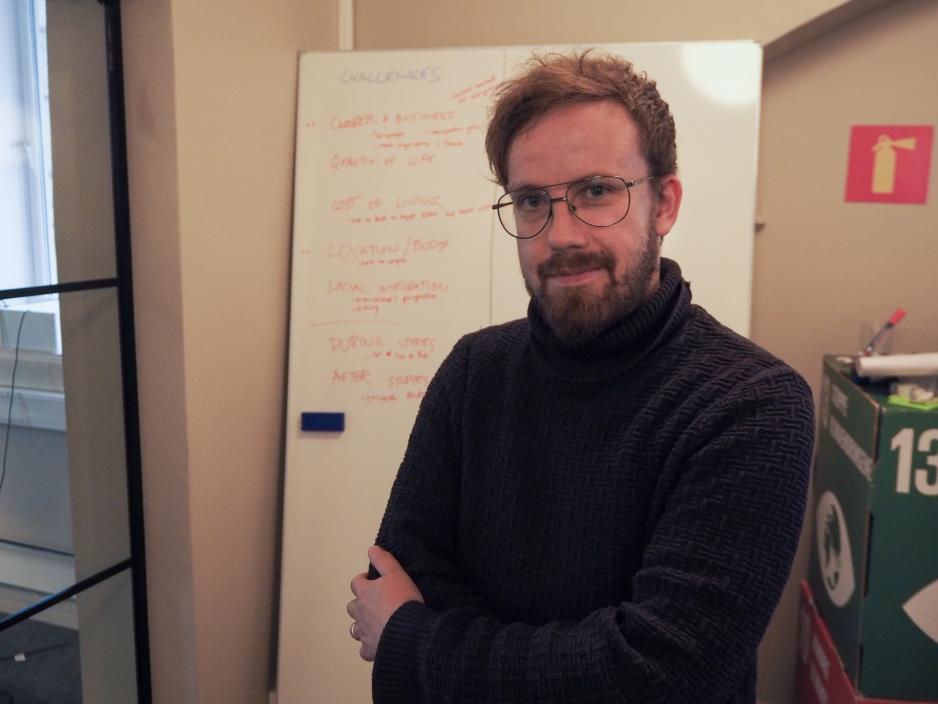New Project: What Does It Take to Get Students to Stay In the North?

Finnish Janne Eerola is leading the StayInNorth project. He hopes the project will help solve problems shared by student cities across the world. (Photo: Birgitte Annie Hansen)
Bodø, Northern Norway (High North News): Students in the North move southward after completing their studies. A new project will now explore what it takes to make the students stay, live and work in the North.
A new EU-funded project will now take a look at a problem that stretches across the entire Northern Nordic region: population decline and migration. More specifically, the project is to find out what it takes for more students to stay in the region after completing their studies.
The StayInNorth project is a cooperation between Nord University in Bodø and the city of Joensuu in Finland, but it wants to develop solutions that could apply to the entire region, as the student cities in the North share many characteristics.
"The challenges in Bodø and Joensuu are quite similar," said project leader Janne Eerola from Joensuu municipality to High North News.
He visited Bodø this week for a StayInNorth workshop that aimed to identify challenges and possibilities for student cities in the North. He emphasized cooperation as an important factor in the work to solve problems in the region.
"This is an extensive problem that can not be solved by just one organisation in one place."
StayInNorth will:
· Look at statistics and reports that have already been prepared on topics in the region
· Identify already implemented projects and measures in the region
· Do case studies of projects that have tried to retain students, minimum 1 project per partner (Joensuu / Bodø)
· Establish a collaboration network with at least 3 universities, 3-4 cities, and 8-10 interested actors representing industry, businesses and other public institutions
· Map new ideas that can be developed into larger collaboration projects
"This is a six-month project in which we will try to build partnerships to then try to do something bigger together. We are exploring the opportunities for what we can cooperate on and with whom," said Eerola.
The project currently has two partners: The High North Center for Business and Governance and Nord University and Joensuu municipality in Finland.
Eerola explains that it is desirable for the future cooperation to stretch across university cities and involve municipalities, business organisations, companies, student organisations, universities, and more.
The project organized a workshop in Bodø this week to identify challenges and possibilities for student cities in the North. (Photo: Birgitte Annie Hansen)
Ultimately, the project aims to provide knowledge that various actors in university towns in the Northern Nordic region can use to make their local communities more attractive to graduates in further shaping policy and other decisions.
Eerola underlined that figuring out how to retain students after their studies can be easier to do in smaller and medium-sized student cities.
"There are so many problems in the world, but even small places like our cities can come up with solutions."
"We have many students, but in quite manageable communities. If we can create an atmosphere in which they feel welcome and get good opportunities, then that can help even bigger cities."


